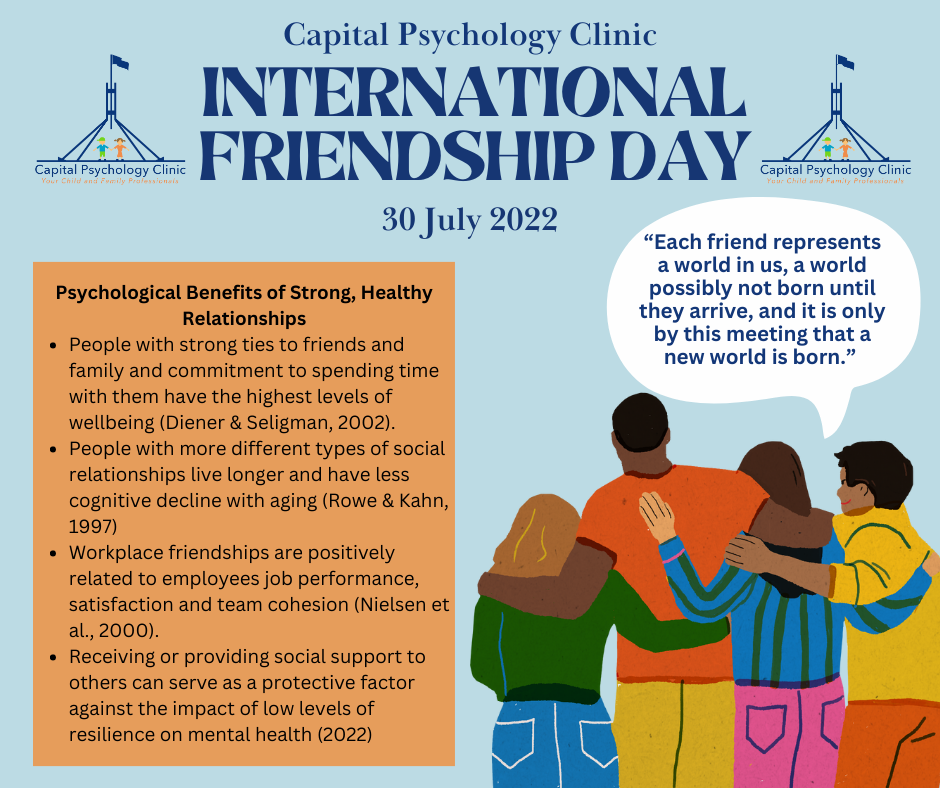While the nature of friendships has changed significantly over the last decade, their importance on our physical, emotional, and mental health has not. Many studies have confirmed what we already knew: people with positive, healthy friendships not only live longer and experience less psychosocial morbidity and mortality, but report greater happiness, wellbeing and satisfaction in all areas of their lives.
Quality vs Quantity of Friendships
Despite common perceptions, it is not just having a large number of friends which leads to a number of positive health outcomes, but the perceived quality of those friendships. The World Happiness Database Study (2002) found that while people with closer friendships reported higher overall levels of happiness and wellbeing, this did not increase with number of friends. Therefore, while it can be good to cultivate a diverse network of friendships, the real benefits of friendship are derived from maintaining a few close, meaningful relationships where you feel a strong sense of belonging and connection.
Virtual vs Real World Friendship
In the age of social media and technology, the ways we build and maintain strong, positive friendships has not only changed, but has become increasingly challenging. Technology has been beneficial in allowing us to connect with distant friends on social media or to meet like-minded people with similar interests through online chat groups. However, these friendships developed or maintained online do not necessarily translate to high quality, positive friendships offline given they are often based on temporary social support or mutual interests and can often lack reciprocity, mutual respect, and affinity.
Maintaining Positive Life-Long Friendships
Unlike familial, romantic or workplace relationships, friendships are unique in the sense that they are voluntary, and we choose to enter them. Therefore, part of the challenge of friendships is that they are open to deterioration, if there is not sufficient time, effort and intention placed into maintaining them. Several ways to maintain or improve the quality of a friendship include:
1. Being an empathetic listener: providing emotional support and attending to their needs during difficult periods is an integral part of friendship. However, if you think that they require support beyond what you can provide, please get in contact with us at Capital Psychology Clinic as we may be able to help.
2. Being honest and trustworthy: Knowing you can both count on one another to keep information private or to provide an honest perspective, fosters emotional intimacy and can help to navigate conflict or problems within or outside the relationship.
3. Being reliable and dependable: making an effort and showing up for your friends demonstrates how much you value and respect their relationship. While it may not always be possible to see each other in person, sending a considerate note or SMS at a time in need can be a way to show you are thinking of them even when you’re not around.

